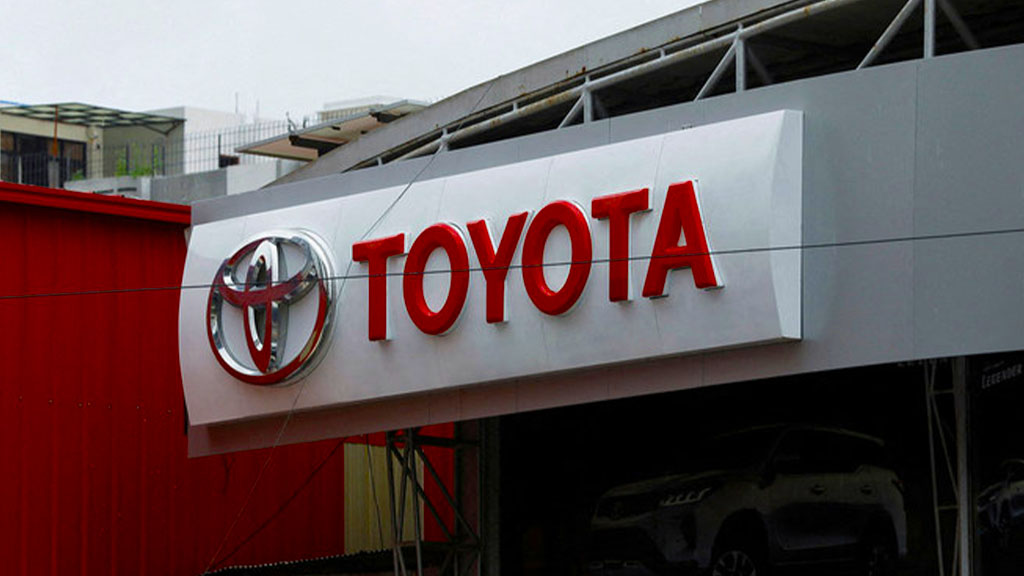- Web
- Feb 05, 2026
Toyota rethinks its bet on hydrogen: FT reports
-

- Web Desk Karachi
- Jan 10, 2025

TOKYO, SEOUL: In 2014, Toyota’s then-president Akio Toyoda said he had ‘seen the future’ and that the release of the Mirai, the company’s flagship hydrogen vehicle, would mark a ‘turning point’ for the automotive industry.
After selling just 27,500 hydrogen cars over the following decade, the world’s biggest carmaker is no longer so certain. “I can’t say for sure that it is a bright future for hydrogen.” Hiroki Nakajima, chief technology officer at Toyota, told reporters at the Fiji Speedway racetrack in Japan in November.
But even as most other major carmakers have gone full in on EVs, Toyota believes that ultimately hydrogen will still carve out a significant role in decarbonising transport.
“If we give up on this technology, then we risk giving up on the future,” said Nakajima.
As part of a pivot to hydrogen-powered trucks, buses and vans, Toyota unveiled a prototype hydrogen-electric hybrid van in November, which it says is the first of its kind and will be tested in Australia.
Toyota is also working with Isuzu Motors to mass produce a light-duty hydrogen fuel cell truck later this decade and has secured deals to supply hydrogen buses in Tokyo, Strasbourg and Madrid.
“On all levels, hydrogen has been a failure for passenger cars,” said James Hong, head of Asia energy transition and commodities at Macquarie Capital. “Where we still haven’t got an answer yet is on commercial vehicle or stationary energy storage demand.”
Hydrogen fuel cells generate electricity through chemical reactions between hydrogen and oxygen, leaving nothing but water vapour coming out of the tailpipe. As we as generating zero carbon emissions; hydrogen-powered vehicles are quicker to refuel than EVs and, for heavy vehicles, have a longer driving range.
Despite government support in countries around the world, the hydrogen ecosystem remains small with few large projects to produce the fuel reaching construction.
As a result of hydrogen fuel cells are not mass-produced and costs have stayed high. A hydrogen version of Toyota’s upmarket Crown car model costs ¥1 million ($6.500) more than one equipped with new hybrid system.
Meanwhile, prices of EVs have been driven down by fierce competition in China and breakthroughs in battery technology. “When you now have a technology that already works, is super cheap, and is good enough, you have to question the necessity for investing in a whole new supply chain,” said an analyst.
Toyota is trying to encourage hydrogen adoption through its tuck-making subsidiary Hino Motors. In 2023, Hino and rival Mitsubishi Fuso Truck and Bus Corporation said they were merging to “seek economies of scale” and focus on hydrogen. However the deal has been delayed, with the companies citing regulatory approvals needed and a certification scandal.
The company has teamed up with other rivals to share development costs, mirroring broader alliances being struck across the industry to fight back against Chinese competition. It has formed or is discussing pacts with South Korea’s Hyundai and Germany’s BMW, both of which have made significant investments in hydrogen-powered cars.
Despite the setbacks, Toyota insiders said they had not given up on hydrogen for passenger cars, with Toyota discussing a partnership last October with his counterpart at traditional rival Hyundai to advance fuel cell vehicles.
They drew parallels to the decade of patience needed before hybrid sales took off and validated their bet on the Prius, which was first sold in 1997.
“This is what Toyota does,” said Hong. “It’s big enough to sustain multiple bets, even those that have a low chance of paying off.”




